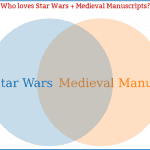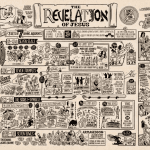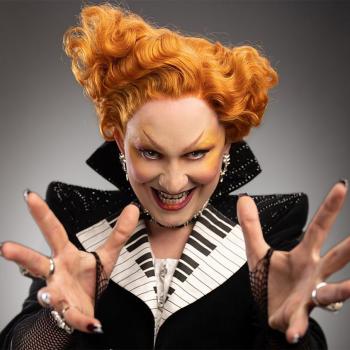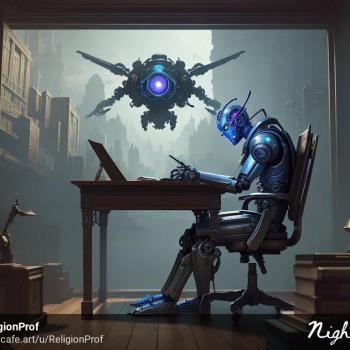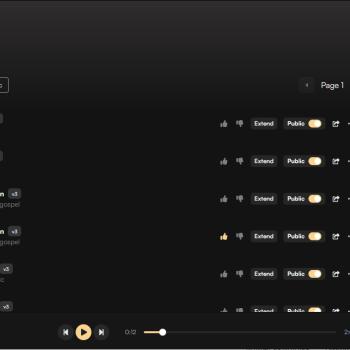From the blog post at Land of Lost Content about Peter Dickinson’s Mass of the Apocalypse:
The most challenging piece on this CD is the Mass of the Apocalypse, which was commissioned for the 300th anniversary of the radical Anglican St James’s Church, Piccadilly. It received its premiere there on 15 July 1984. It is certainly not a work that could be used in any liturgical context and can only be performed as a ‘concert piece’. Structurally, it is a mish-mash of words collated from the Mass and from the Book of Revelation. This confusion is further increased by the use of the memorable prose of the Authorised King James Version for those parts of the work which are spoken against a background of music, with the sung parts conned from the less than satisfactory and somewhat pedestrian language of the now largely redundant ASB (Alternative Service book). The Mass is set for soprano and mezzo-soprano soloists, speaker and four-part chorus. Two percussionists and a pianist provide the accompaniment. I enjoyed this music in spite of its non-traditional format and the perplexity of styles. It is certainly a moving piece that will provoke a response from the listener of one kind or another.
Have a listen to an excerpt here:
This is certainly an unusual setting of the Book of Revelation in many respects, both in terms of what is done with the text as well as musically.
The Land of Lost Content blog regularly features church music from the Anglican tradition. Here are some of the composers and CDs they’ve highlighted relatively recently that include some connection with church music:
Robin Walker, Turning Towards You
C. S. Lang organist and composer
C. V. Stanford’s Welcome March
Of related interest, it was cool to see two different channels/people I’m connected to on social media converge in this way:
Bob MacDonald blogged about modes and biblical music
And perhaps more distantly related to this post, but clearly connected to things I am interested in and blog about regularly, here is an article about the use of the Dies Irae melody in dramatic movie scenes.



